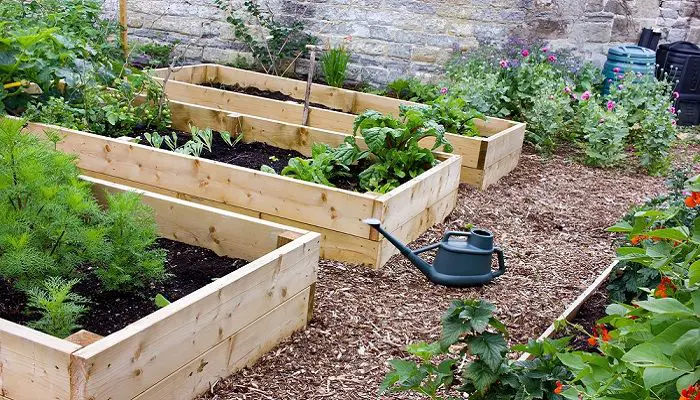Having raised beds in the garden is great for a number of reasons. Not only do they look good and help add to the overall style of your garden, but they’re ideal for utilising the space you have properly and help to reduce the number of weeds that can take over and cause issues further down the line. There are a few key things to remember when it comes to gardening with raised beds, and we’ve put together our top tips to help make your projects a success.
The Right Irrigation System
In order to irrigate your raised beds properly, you need to focus on either drip irrigation or soaker hose. By planning ahead and getting your irrigation system in place before you start any of your projects, you’ll find it much more efficient and easier to get the tasks done. By adding your irrigation system in advance, you save yourself the effort of having to manually stand with your hose once your seeds have been planted. Visit online retailer Two Wests to find out which irrigation systems are best for raised bed gardening and which will work best for your garden.
Mulch, Mulch and Mulch Again
If you hadn’t already gathered, mulch is essential when it comes to raised beds. Mulch helps to keep the soil in your beds moist and therefore provides great results for each project. There are lots of different types of mulch that you can use on your raised beds, such as grass clippings, leaves or wood chips. You can also use straw to help the mulching process, but the key is to introduce the mulch after you’ve planted everything into your raised beds, as this will really help throughout the growing process.
By adding mulch to your soil, no matter what season it may be, you are able to protect it from every weather condition. It’s important to cover your soil with mulch, even if you’re not actually using it as this can protect it from rain, snow and other heavy winter weather conditions that could cause lasting damage to your soil and therefore affect your future plans to plant.
Avoid Disruption
After getting your soil to the perfect condition for your plants, the last thing you want to do is to damage or disturb it. Try to avoid stepping onto the soil at all times, as this will have a very negative impact on the quality of the soil you’ve been creating. Your soil will be soft and fluffy when left in the raised beds and this is the exact condition you want when planting. Ensure your raised beds have plenty of room for you to move around the area to get things done, as this will ensure you don’t have to stand on the soil and cause any damage.
Making the Most
One of the huge benefits to having raised beds in the garden is the ability to grow your own herbs to use in everyday life. There’s nothing more rewarding than growing your own basil, thyme or rosemary and the fresher the herb the tastier the dish tends to be. Make the most out of your raised beds by planting your own little herb garden and then you can reap the benefits by using them in your own meals.
Raised bed in the community gardens
Community gardens provide access to fresh produce and plants as well as access to satisfying labor, neighborhood improvement, sense of community and connection to the environment. Some gardeners choose to solely grow flowers, while other gardeners grow vegetables for their own personal use, or to share with their neighbors.
Above-ground gardening offers access and ease for community gardeners of all ages and abilities.






